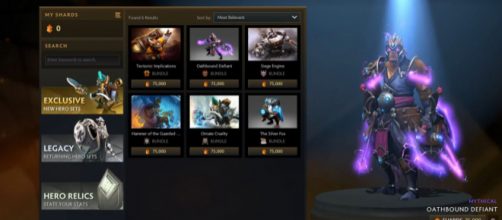Following an investigation, the Belgium Gaming Commission has ruled that loot box systems featured in up to three video games constitute illegal gambling and could find and imprison game publishers for peddling them within the country.
According to a statement issued by Koen Geens, the Minister of Justice in Belgium, the randomized loot box systems featured in games such as "FIFA 18," "Counter-Strike: Global Offensive" and "Overwatch" present a "game of chance" that lures players in without informing them of actual benefits. In its investigation, the Committee found that young players are especially vulnerable to losing real money given the lack of disclosure of loot randomizing and potential losses.
Therefore, game publishers of all three titles are subject to Belgian gaming law and thereby must remove the loot boxes or face a fine and possible imprisonment if they fail to comply with this new law. Those publishers could end up paying roughly €800,000 in fines and serve up to five years in prison or double if minors are involved.
They are not alone
Belgium isn't the only country that's currently cracking down on predatory loot boxes. Earlier this week, the Netherlands ruled that loot boxes from four video games are illegal and therefore shall be banned. Reports suggested that the games illegalized by the commission were "Player Unknown's Battlegrounds," "FIFA 18," "Dota 2" and "Rocket League." Besides the Netherlands, lawmakers in the state of Hawaii are currently lobbying for a quartet of bills that will outlaw loot boxes in their state.
It's all EA's fault
The Belgium Gaming Commission's ruling was a direct response to publisher Electronic Arts' decision to release "Star Wars: Battlefront II" with loot boxes. The game became notorious for including loot boxes that provided players with upgrades that drastically enhanced their performances in competitive multiplayer, citing fear and anxiety over the predatory nature of the systems within triple-A titles.
Following this outrage, the Committee launched an investigation into "Star Wars: Battlefront II" as well as the other three games to determine whether these fear were well founded. However, while the latter titles were deemed unlawful--consequentially subjecting their publishers to legal ramifications--EA would swiftly dodge the bullet by removing the in-game purchasing and change the loot box content to 'cosmetics' before the Commission's ruling was passed.


